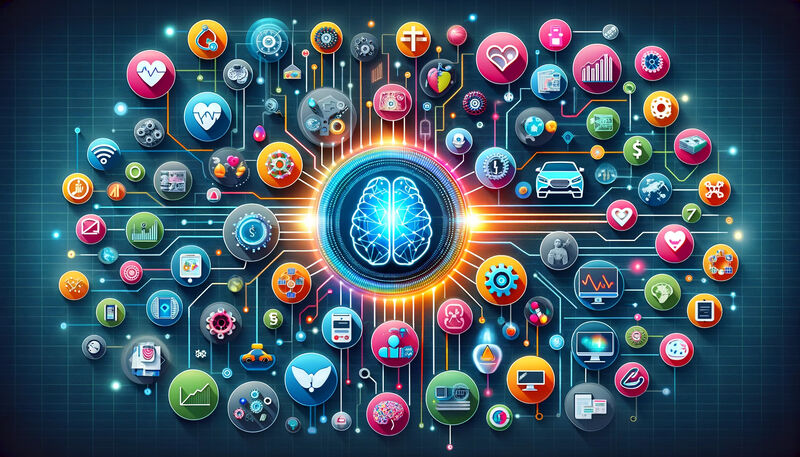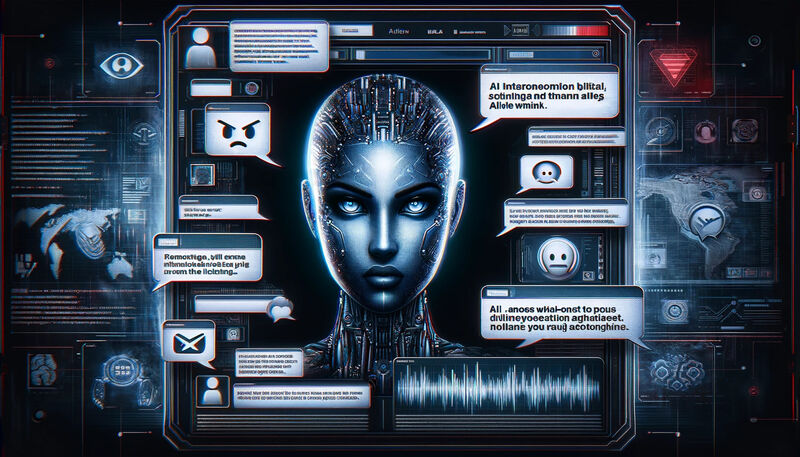Understanding Artificial Intelligence: A Glimpse into the Future of Technology

In the rapidly evolving landscape of technology, Artificial Intelligence (AI) has emerged as a beacon of innovation, transforming how we live, work, and interact with the world around us. But what exactly is AI, and how does it function? This article delves into the intricate world of AI, shedding light on its mechanisms and the profound impact it has on various sectors.
What is Artificial Intelligence?
At its core, Artificial Intelligence is the simulation of human intelligence processes by machines, especially computer systems. These processes include learning (the acquisition of information and rules for using the information), reasoning (using the rules to reach approximate or definite conclusions), and self-correction. AI is designed to perform tasks that typically require human intelligence, such as visual perception, speech recognition, decision-making, and language translation.
AI can be categorized into two broad types: Narrow AI and General AI. Narrow AI, also known as Weak AI, is designed and trained for a particular task. Virtual personal assistants, such as Siri and Alexa, are examples of Narrow AI. General AI, or Strong AI, is an AI system with generalized human cognitive abilities. When presented with an unfamiliar task, a Strong AI system can find a solution without human intervention.
How Does AI Work?
AI operates through a combination of algorithms and datasets. An algorithm is a set of rules or instructions that a computer follows to perform a task, while a dataset is a collection of data that the AI system uses to learn how to perform its tasks.
1: Machine Learning (ML): Machine Learning is a subset of AI that enables a system to learn from data rather than through explicit programming. ML algorithms use statistical techniques to enable computers to improve at tasks with experience. For example, ML is used in recommendation systems like those on Netflix and Amazon.
2: Deep Learning (DL): Deep Learning is a subset of ML that uses neural networks with many layers. These neural networks are designed to mimic the human brain's structure and function, allowing the AI system to learn from large amounts of data. Deep Learning is behind many of the most advanced AI applications, including voice recognition systems and autonomous vehicles.
3: Natural Language Processing (NLP): NLP is a field of AI that focuses on the interaction between computers and humans using natural language. The goal of NLP is to enable computers to understand, interpret, and generate human language in a valuable way. NLP technologies are used in applications like chatbots and translation services.
The Impact of AI
AI's applications are diverse and far-reaching, affecting industries such as healthcare, finance, automotive, and entertainment. In healthcare, AI is being used to diagnose diseases more accurately and in a fraction of the time it takes human practitioners. In finance, AI algorithms are used to detect fraud and automate trading activities. The automotive industry is leveraging AI to develop autonomous vehicles that could revolutionize transportation.
Despite its potential, AI also presents challenges, including ethical considerations, privacy concerns, and the displacement of jobs. As AI technology continues to advance, it is crucial for policymakers, businesses, and individuals to consider these implications and work towards responsible AI development and use.
Looking Ahead
As we stand on the brink of a new era of technological advancement, AI continues to push the boundaries of what's possible. With ongoing research and development, the future of AI promises even greater innovations, potentially leading to breakthroughs that we can scarcely imagine today. Understanding AI and its mechanisms is the first step towards navigating this future, ensuring that we harness its power to improve lives and create a better world for generations to come.

